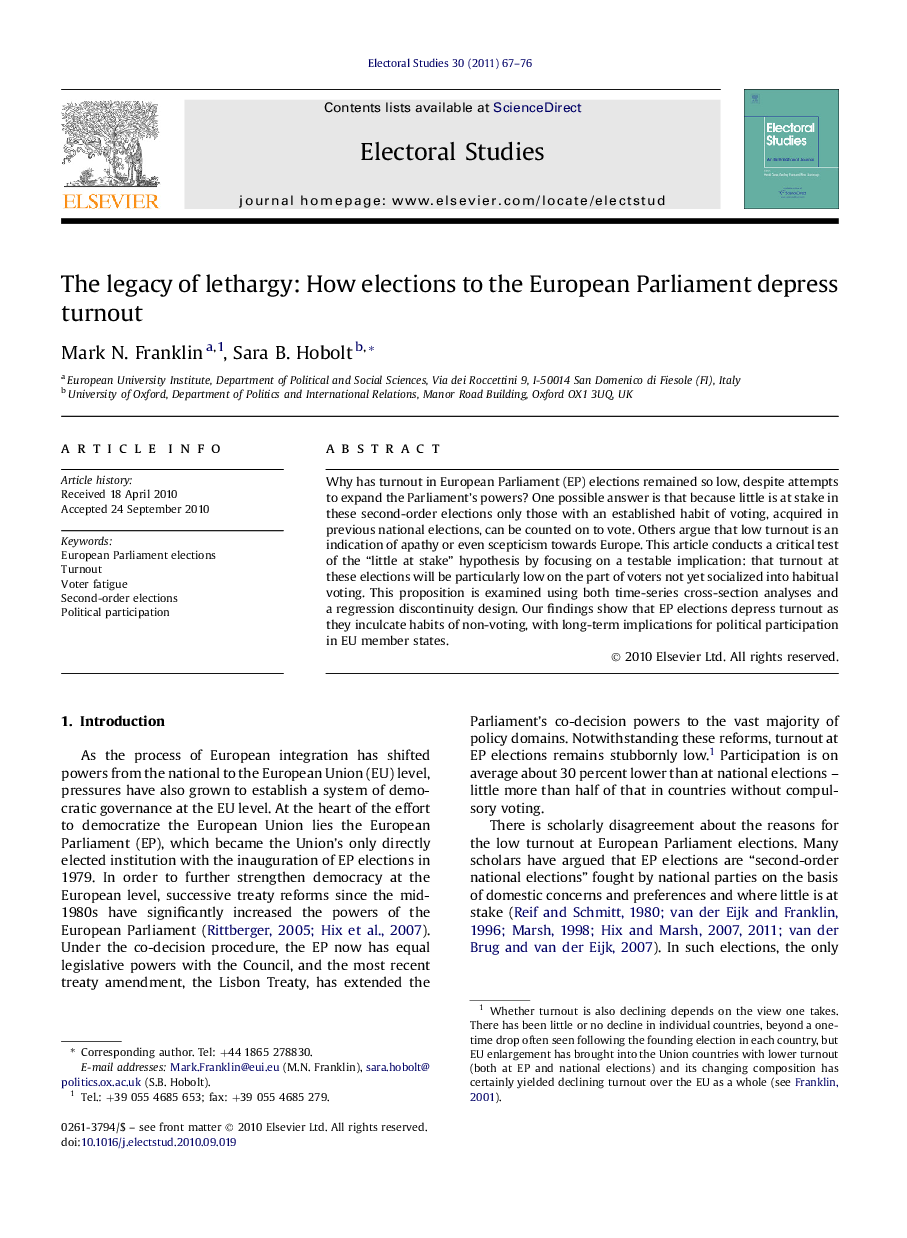| Article ID | Journal | Published Year | Pages | File Type |
|---|---|---|---|---|
| 1052231 | Electoral Studies | 2011 | 10 Pages |
Why has turnout in European Parliament (EP) elections remained so low, despite attempts to expand the Parliament’s powers? One possible answer is that because little is at stake in these second-order elections only those with an established habit of voting, acquired in previous national elections, can be counted on to vote. Others argue that low turnout is an indication of apathy or even scepticism towards Europe. This article conducts a critical test of the “little at stake” hypothesis by focusing on a testable implication: that turnout at these elections will be particularly low on the part of voters not yet socialized into habitual voting. This proposition is examined using both time-series cross-section analyses and a regression discontinuity design. Our findings show that EP elections depress turnout as they inculcate habits of non-voting, with long-term implications for political participation in EU member states.
